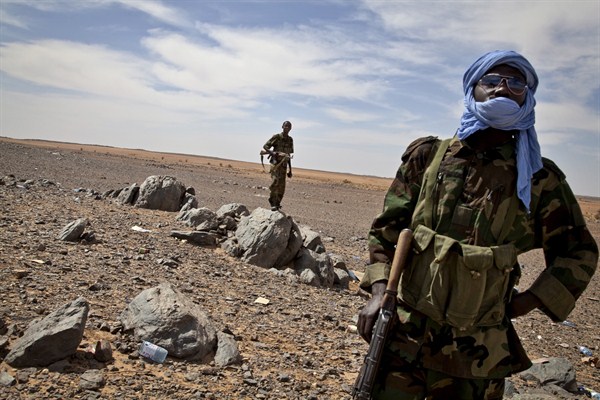Who can do the best job of fighting terrorists in Africa? Islamist extremist groups such as al-Qaida in the Islamic Maghreb, Somalia’s al-Shabab and northern Nigeria’s Boko Haram are garnering increasingly intense international attention. Last week, the U.S Army chief of staff was in Tanzania to discuss the threat with his African counterparts. In the meantime, United Nations Security Council ambassadors were visiting Somalia, while Western and Arab foreign ministers met in Vienna to discuss Libya, where the self-declared Islamic State has a foothold.
Also last week, the Nigerian government claimed a symbolic victory when it announced that it had managed to rescue one of the Chibok girls, a group of nearly 300 teenagers kidnapped by Boko Haram in 2014. But there was a sobering reminder of the challenges inherent in fighting extremists in Mali, where five Chadian peacekeepers died in an ambush. This was a sadly routine occurrence: Islamists and local insurgents have killed almost 60 members of the United Nations mission in Mali (MINUSMA) since its launch in 2013.
Many U.N. officials say that this shows that their organization should not tackle terrorist threats elsewhere. Yet more broadly, counterterrorism is a growth industry across large parts of Africa, and stamping out Islamists is overshadowing the other security challenges the continent faces. There is a risk that this will initiate an endless cycle of wars, as African militaries and regional organizations focused on crushing Islamist groups at times abuse human rights, alienate local communities and inspire further resistance in doing so.

